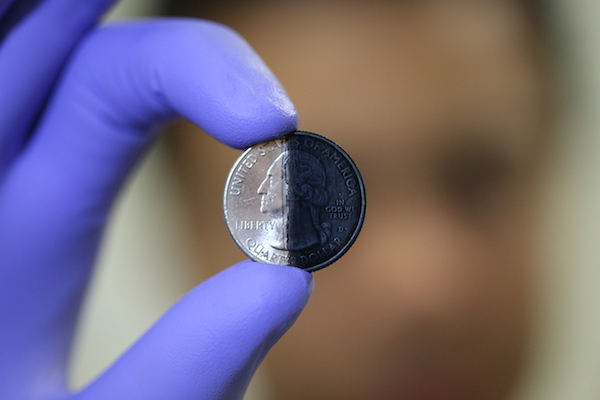Electroplating vs Organic Coatings
If you’re looking to protect your fasteners from corrosion, improve their appearance or control the amount of torque required to tighten, that means you’re going to have to put a finish on it. Typically, if you wanted a coating put onto your fastener, you were talking about electroplating – mostly with zinc, followed by chromate conversion coating to delay the onset of white corrosion of the zinc.
Generally speaking, fastener coatings do one of three things. First, they protect against corrosion two different ways:
- Barrier protection, where the coating works as a barrier between a corrosive media and the substrate
- Sacrificial protection, where two dissimilar metals come in contact
Second, coatings will improve the fastener’s appearance, especially if it’s essential to match a specific color and coat uniformly. Finally, coatings can add lubricity. Erratic friction can lead to either a loose joint or too much strain on the fastener and a coating can balance that.
When it comes to the coatings themselves, there are two main types: organic and electroplated.
Electroplating
Also known as electrodeposition, electroplating is the process of coating a metal with a thin layer of another metal by electrolysis to improve corrosion resistance. The metals most commonly used in plating fasteners are copper, nickel, zinc, zinc-alloy and tin.
In order to electroplate a fastener, the anode (the metal used for plate) is connected to the positive terminal and the cathode (part to be plated) is connected to the negative terminal. Both are immersed in a solution containing an electrolyte and then connected to an external supply of direct current.
When DC power is applied, the anode is oxidized; its metal atoms dissolve in the electrolyte solution. These dissolved metal ions are reduced at the cathode and form a coating. The current through the circuit is adjusted so that the rate at which the anode is dissolved equals the rate at which the cathode is plated.
Advantages and Disadvantages of Electroplating
Electroplating is a technology used worldwide to achieve high-quality, low-cost finishes at a level of efficiency and environmental compliance no other finishing method approaches. That said, electroplating has its pluses and minuses.
Pluses
- Good corrosion resistance
- Relatively thin coatings (.0001)
- Variety of metals that can be used for electroplating
- Lends itself to a number of different conversion coatings (known as passivates or chromates)
- A wide variety of supplemental topcoats are available such as wax, sealers, and torque-tension modifiers
- Creates a lasting finish that will stand up to water, sunlight, chemicals, etc.
Minuses
- Potential uneven coating thickness due to the method in which the plating is “thrown” on the part. This is more pronounced on longer papers and is commonly known as the “dog-bone effect” where the plating thickness is heavier on the ends.
- Hydrogen embrittlement is a concern for high strength parts due to the introduction of acid in the cleaning and electroplating processes.
Organic Coatings
An organic coating from compounds rich in carbon. They act as a protective barrier against corrosion and oxidation.
Organic coatings depend primarily on their chemical inertness and impermeability to provide protection. They are easy to apply with a number of different methods. Various types of organic coatings are available for industrial purposes and they can be monolithic (only one layer) or two or more layers.
Advantages and Disadvantages of Organic Coatings
Organic coatings are nearly always a barrier coating, providing protection between the fastener and the environment. If this is broken, protection ceases.
Pluses
- Eliminate the hazard of hydrogen embrittlement
- Doesn’t building up on the roots (the valleys) and crests (tops of the threads) of fasteners the way electroplating will.
- Provides a good base coating for rust preventative oils, zinc flake coatings, thread adhesives, patches, and thread sealers.
Minuses
- Typically more expensive than commercial zinc with an aluminum-rich organic ranking at the top
- Tend to fill recessed drives making it difficult or impossible to use the tools meant to drive them
- Do not offer galvanic protection unless heavily loaded with zinc or aluminum flakes
Both electroplating and organic coatings have their own set of ideal applications. But in the end, it’s the engineer’s task to sort out what is really important for a given application in terms of cost and performance – and those needs will drive which coating is required.
Ask Auto Bolt which types of coatings are appropriate for your application!
Topics

